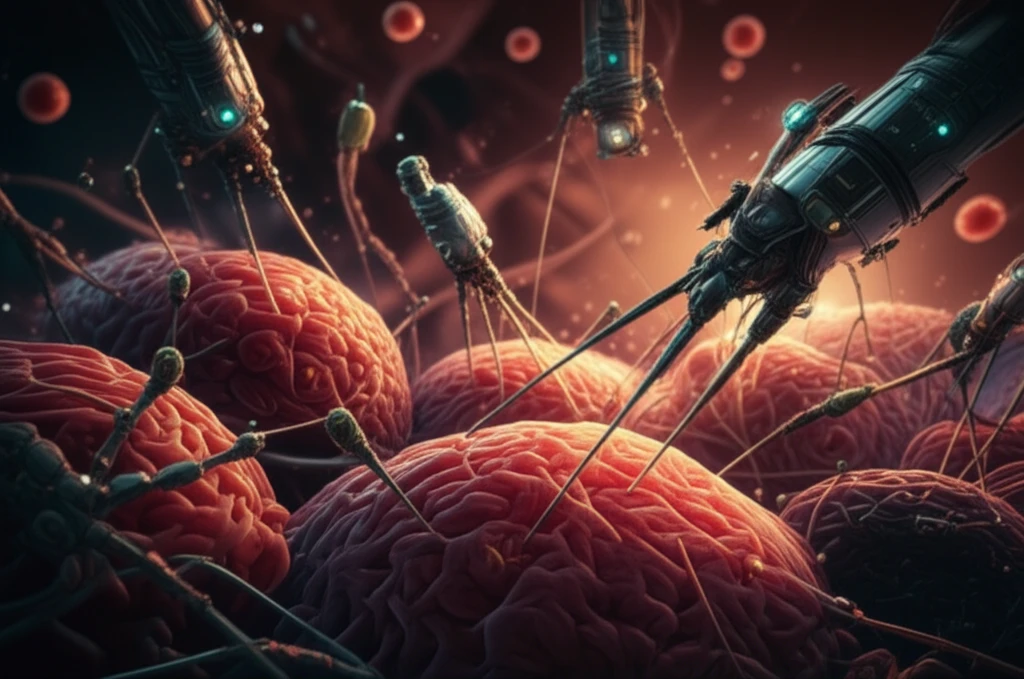
Nano-Revolution: How Tiny Tech Could Transform Your Life
"Exploring the vast potential and applications of nanotechnology across medicine, energy, and everyday life."
In today's rapidly advancing world, technology is not just evolving—it's shrinking. Nanotechnology, the science of manipulating matter at the atomic and molecular level, is emerging as a transformative force with the potential to reshape our lives and industries. This isn't science fiction; it's a rapidly developing field with real-world applications already making an impact.
The term "nanotechnology" was coined in 1971 by Professor Norio Taniguchi at the University of Tokyo, marking the formal inception of a field that has since captured the imagination of scientists, engineers, and entrepreneurs alike. A nanometer is one billionth of a meter, a scale so small that it allows us to engineer materials and devices with unprecedented precision and functionality.
From revolutionizing medicine to creating more sustainable energy solutions, nanotechnology promises to address some of the world's most pressing challenges. This article delves into the exciting world of nanotechnology, exploring its potential applications, benefits, and the future it could unlock.
What Can Nanotechnology Do For You?

Nanotechnology is not just a scientific curiosity; it's a practical toolkit with applications spanning numerous sectors. Its ability to manipulate matter at the nanoscale allows for the creation of materials and devices with enhanced properties, leading to breakthroughs in various fields.
- Medicine: Nanotechnology is revolutionizing drug delivery by enabling targeted treatments that minimize side effects. Nanoparticles can be engineered to deliver drugs directly to cancer cells, reducing damage to healthy tissue. It also improves medical diagnostics through highly sensitive nanosensors that can detect diseases at an early stage.
- Energy: Nanotechnology offers solutions for more efficient energy production and storage. Nanomaterials are being used to develop high-performance batteries, solar cells, and fuel cells, making renewable energy sources more viable and sustainable.
- Environment: Nanotechnology plays a crucial role in environmental remediation. Nanoparticles can be used to clean up pollutants in water and air, offering innovative solutions for environmental challenges.
- Materials Science: Nanotechnology enhances the strength, durability, and functionality of materials. Nanocomposites are used in various applications, from lightweight automotive parts to scratch-resistant coatings, improving product performance and longevity.
- Electronics: Nanotechnology drives advancements in electronics by enabling the creation of smaller, faster, and more energy-efficient devices. Nanotransistors and nanowires are key components in next-generation electronic devices.
The Future is Nano
Nanotechnology is more than just a buzzword; it's a rapidly evolving field with the potential to reshape our world. As research continues and new applications emerge, nanotechnology promises to drive innovation, improve lives, and address some of humanity's most pressing challenges. From medicine to energy to environmental sustainability, the future is undoubtedly nano.
